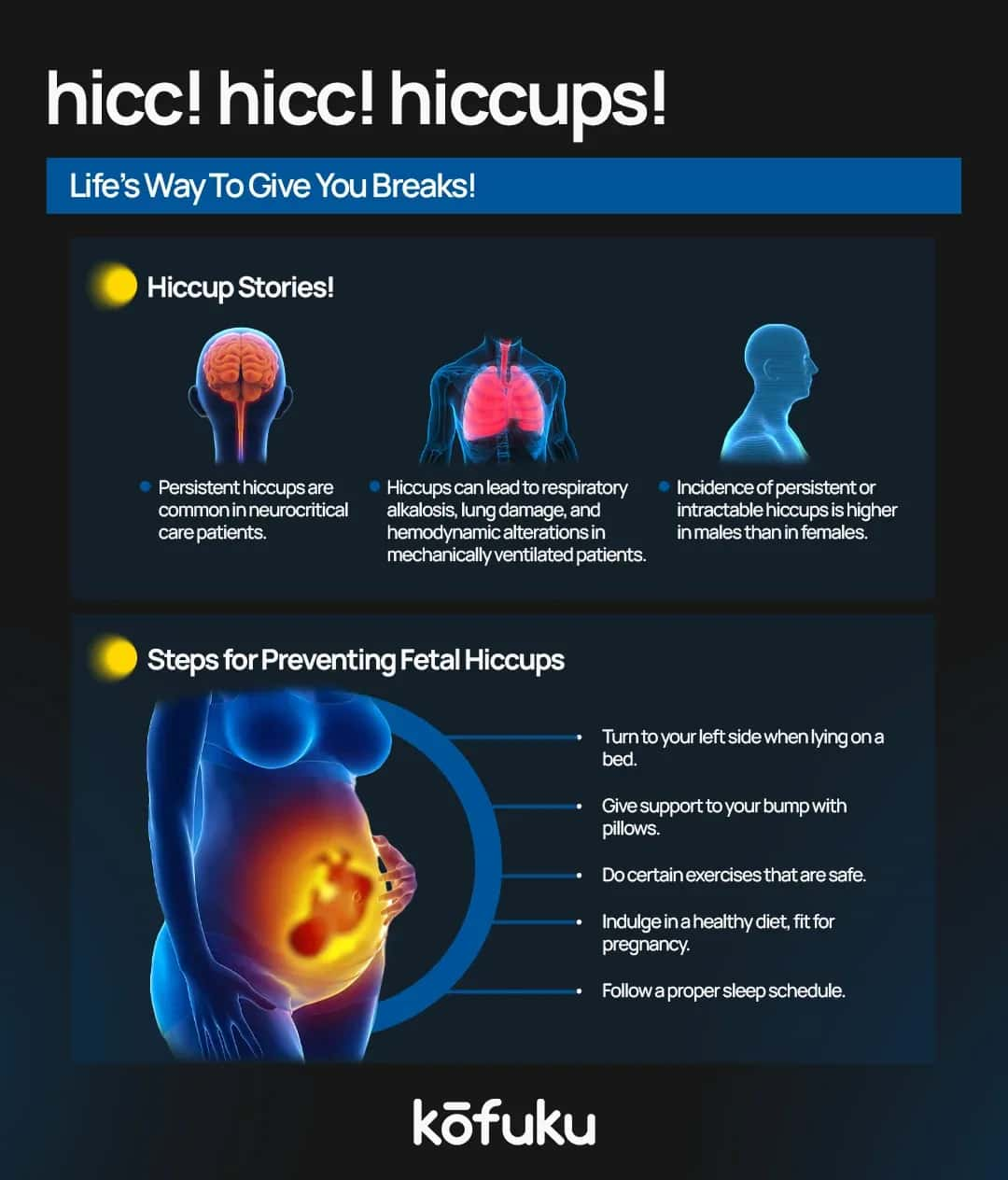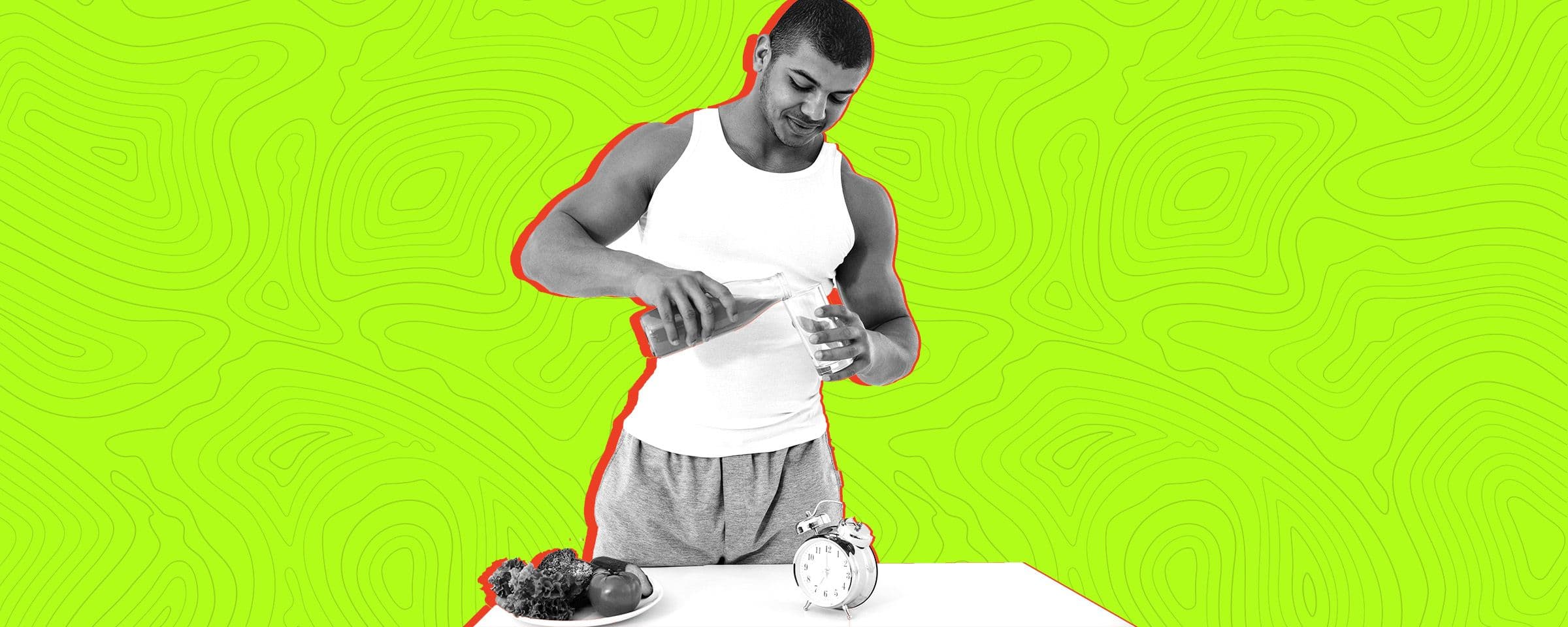Quick Ways to Get Rid of Hiccups


Introduction
Hiccups. Those tiny, annoying interruptions that seem to pop up at the worst possible moments, like in the middle of an important meeting, on a first date, or just as you’re about to deliver the punchline of a joke. And once they start, they refuse to leave.
We’ve all heard the usual advice, “Hold your breath or drink water.” But let’s be real: Half of these “cures” are just wishful thinking. So, if you’re battling a stubborn case of hiccups right now, don't worry—I’ve got you covered.
Here are some quick, quirky, and actually effective ways to stop hiccups.
How Does Hiccup Happen?
Before getting into what really causes hiccups, let’s try to learn what hiccups are.
Hiccups are medically known as singultus. It happens when the diaphragm and intercostal muscles contract involuntarily. As the larynx contracts and the vocal folds close, the airflow is effectively blocked.
Now that we know the basics let’s head on to the almighty “What causes it?”
There are numerous factors that make us have hiccups, such as -
-
Eat hot and spicy food
-
Eating too much too quickly
-
Being stressed or excited
-
Carbonated drinks
-
Breathing in too fast or swallowing air
-
Lack of air
-
Heavy alcohol consumption
-
Underlying medical conditions

Ways to Get Rid of Hiccups
Swallow a spoonful of something weird
Sometimes, your diaphragm just needs a little distraction. Try swallowing -
-
A spoonful of sugar - Not the powdered kind but the grainy texture that can help reset your throat’s reflexes.
-
A spoonful of peanut butter - The thick, sticky texture forces your swallowing muscles to focus on something else.
-
A spoonful of honey - Bonus! It soothes your throat while stopping the hiccups. Weird? Yes. Effective? Oh, for sure, for sure.
-
The ice cube and lemon shock therapy - it’s time to shock your system to teach hiccups a lesson! Bite into a lemon slice, and suck on the ice cube for a few seconds.
-
Try a sip of vinegar - Yep, you read it right and also since you’ve already gone great lengths to stop your hiccups try this one as well. It’s unpleasant, but desperate times call for desperate measures.
-
Drink water from the wrong side of the glass - Basically, you can bend and drink the water from the upper brim instead of the lower, which is closer to the lips.
And you may wonder, why all of these tactics? That’s because the extreme taste or temperature can interrupt the hiccups and reset your diaphragm.
Try these breathing techniques
If none of those “gulping things” worked, maybe we should focus on your breathing.
-
Measure your breathing - Take a slow breath and breathe in for five seconds and out for another five. Try to catch a pattern to disrupt your regular respiratory flow.
-
Try holding your breath for 20 seconds after inhaling a large gulp of air.
-
Breathing into a paper bag this can even be used when you’re having an anxiety attack.
-
Hug your knees like it's your lover - Bring your knees to your chest and lean forward, this will compress your chest and put pressure on your diaphragm. Hiccups will be cured, not sure about your loneliness, though!
Let’s put pressure on the right places
Don’t worry; we got other techniques up our sleeves as well.
-
Gently pull your tongue out as it will stimulate your nerves and muscles of your throat. Do it once or twice.
-
Look up and squeeze your nose; if you need to breathe, do it from your mouth.
-
Massaging your carotid artery gently might help; it is situated on both sides of your neck. You can massage it in a circular motion for 10 seconds.
Alternative remedies
Acupuncture or hypnosis, I know it sounds crazy and creepy at the same time, but there has been research and books written about how hypnosis can cure certain habits. (Check out “Many Lives, Many Masters” by Dr. Brian Weiss)

Risk Factors That Could Come Along
Occasionally, hiccups are caused by a medical condition, such as gastroesophageal reflux disease, in which case addressing the underlying cause may help prevent them.
If your hiccups are frequent or you may have chronic hiccups then you probably require further assistance by a healthcare professional to determine the cause behind it.
Doctors usually define hiccups that last longer than 48 hours as chronic hiccups. They are normally hard to control if they remain for more than 30 days.
But other risk factors that come along with hiccups include -
-
Stroke
-
Weight loss and dehydration
-
Insomnia
-
Fatigue
-
Communication/ social anxiety
-
Depression
Six Fun Facts You Didn’t Know About Hiccups
-
Did you know that according to the Guinness World Records, Charles Osborne is the person who has had the longest attack of hiccups. He hiccupped continuously for 68 years (1922–1990).
-
The “hic” sound that we make during hiccup is due to a spasm in our diaphragm that causes our vocal cords to suddenly close.
-
A theory suggests that hiccups could be linked to evolution and our ancient ancestors who lived in the sea (yessir! Aquaman could be our cousin). The theory suggests that once the hiccup begins, it is sustained by a simple motor reflex we may have inherited from amphibians.
-
Hiccups occur in almost every mammal's life.
-
Infants hiccup more than adults.
-
Ultrasounds have shown that fetuses hiccup, too!
Conclusion
Honestly, hiccups cure are like Wifi signals - some work better in certain situations than others. Try one, and if it fails, move on to the other.
And if your hiccups last more than 48 hours, it might be time to check in with a doctor (because fun fact - chronic hiccups can sometimes signal some serious medical issues).
Now, go forth, armed with these tricks, and defeat those annoying little spasms like a pro!
FAQs
What causes hiccups?
The usual culprits include eating too fast, drinking carbonated beverages, inhaling large amounts of air or sudden temperature changes.
What’s the quickest way to stop hiccups?
There’s no one size fits all approach but you can try holding your breath and slowly exhaling, drinking water or eating a spoonful of sugar, honey or even biting a slice of lemon.
Can hiccups be dangerous?
Most hiccups are harmless and last only a few minutes. However if your hiccups last more than 48 hours, it could be a sign of chronic hiccup or some underlying condition.
Why do babies get hiccups so much?
Babies have super sensitive diaphragms, which means they can get hiccups from something as simple as swallowing air while feeding.
Why does getting scared help with hiccups?
The idea is that sudden shock or surprise resets your breathing patterns and interrupts the hiccup cycle. But it only works sometimes.





